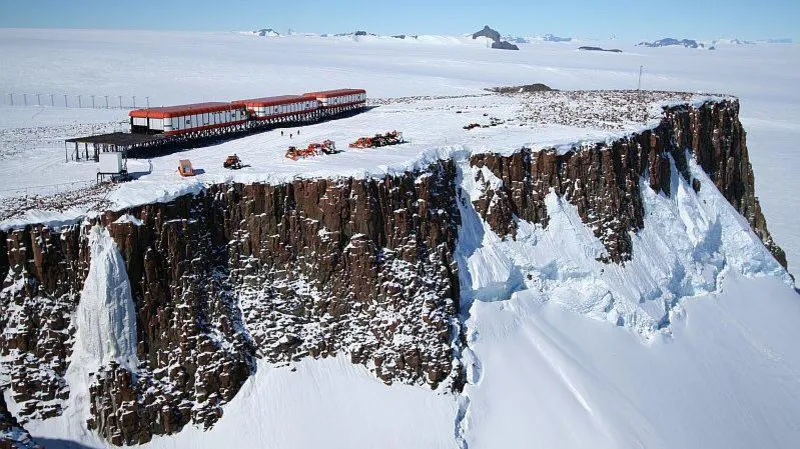Scientists at Antarctic Base Stunned by Alleged Assault Incident
A team of scientists working at a remote Antarctic research station has been shaken by an alleged physical assault. The incident occurred at the South African-run Sanae IV base, located about 170km (105 miles) from the edge of the ice shelf. The base is extremely isolated, making it hard to reach or leave during the harsh Antarctic winter.
According to the BBC, a South African government spokesperson confirmed “there was an assault” at the station. This follows earlier reports of inappropriate behavior among the team of nine researchers stationed there. The South African environment ministry said it is addressing the issue with “utmost urgency.”
The Sunday Times, a South African newspaper, first reported the story, stating that some team members had asked to be rescued. The ministry explained that all team members had passed thorough evaluations, including background checks, medical assessments, and psychological tests, before being sent to Antarctica. However, the ministry acknowledged that adjusting to such extreme isolation can be challenging, even for well-prepared individuals.
The incident was first reported to the ministry on February 27, nearly a month after the team arrived at the base on February 1. The ministry said it immediately activated a response plan to mediate and restore relationships among the team. It also confirmed that allegations of sexual harassment are being investigated but clarified that reports of sexual assault are incorrect.
The alleged perpetrator has reportedly shown remorse, participated in further psychological evaluations, and written a formal apology to the victim. A government minister is personally overseeing the situation.
The Sanae IV base is over 4,000km from mainland South Africa, and its harsh weather conditions often leave scientists cut off for months. The team, which typically includes doctors, engineers, and technicians, is meant to stay for about 13 months.
While such incidents are rare, they are not unheard of in Antarctica. In 2018, a stabbing was reported at a Russian-operated research station. Psychologists say isolation can amplify small conflicts, such as disagreements over tasks, schedules, or even food portions, into larger issues.
Craig Jackson, a workplace health psychology expert, told the BBC that in isolated environments, “tiny things can blow up into conflict.” Gabrielle Walker, a scientist and author who has visited Antarctica, added that living in close quarters with the same people 24/7 can lead to irritation and tension.
South Africa has access to ships and aircraft capable of reaching the base if needed, but any rescue operation would face extreme weather challenges, including freezing temperatures and strong winds.
Credit to Reuters and the BBC for their detailed reporting on this developing story. This incident highlights the unique challenges of working in one of the world’s most isolated and extreme environments.
https://www.bbc.com/news/articles/cgkm0k2j6edo

